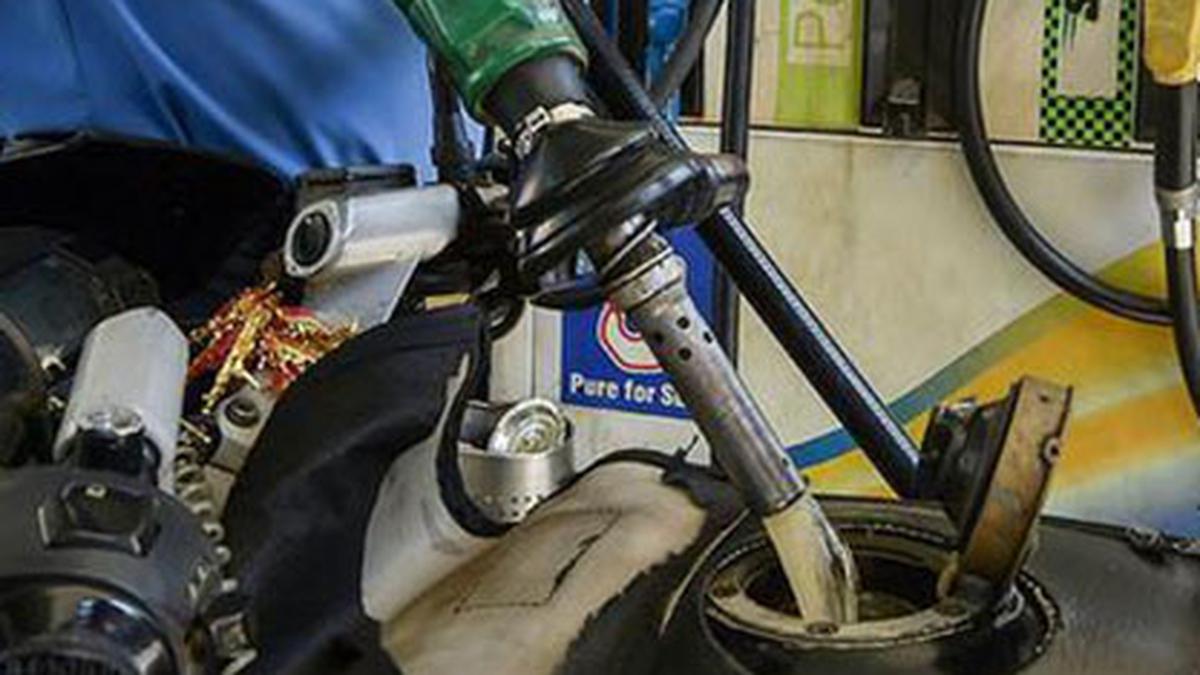
No petrol, diesel price hike likely despite crude oil price surge as elections loom: Moody's
The Hindu
OMCs unlikely to increase petrol, diesel prices despite rising raw material costs due to upcoming elections. Despite crude oil prices surging, OMCs have kept prices on freeze for 18 months. High crude oil prices will weaken profitability of IOC, BPCL and HPCL. OMCs' earnings remain strong in 1Q FY2024, but expected to weaken in next 12 months. IOCL and BPCL better positioned to withstand increase in feedstock costs. Leverage of all three OMCs to remain well-positioned despite high capital spending. Govt's ₹30,000 cr capital support to boost OMCs' cash flows, partially cover capital spending.
Petrol and diesel prices are unlikely to be increased despite firming raw material costs because of upcoming general elections next year, Moody's Investors Service said.
Three state-owned fuel retailers — Indian Oil Corporation (IOC), Bharat Petroleum Corporation Ltd (BPCL) and Hindustan Petroleum Corporation Ltd (HPCL) — which control roughly 90% of the market, have kept petrol and diesel prices on freeze for a record 18 months in a row.
This is despite the raw material (crude oil) cost surging last year, leading to heavy losses in first half of 2022-23 fiscal year before easing oil prices propelled them to profitability.
Also Read | High oil prices to weaken profitability of 3 PSU oils firms, says Moody’s
International oil prices have firmed up since August, leading to margins of three retailers turning negative again.
"High crude oil prices will weaken the profitability of the three state-owned oil marketing companies in India — IOC, BPCL and HPCL," Moody's said in a report.
"The three companies will have limited flexibility to pass on higher raw material costs by increasing the retail selling prices of petrol and diesel in the current fiscal year because of upcoming elections in May 2024."













